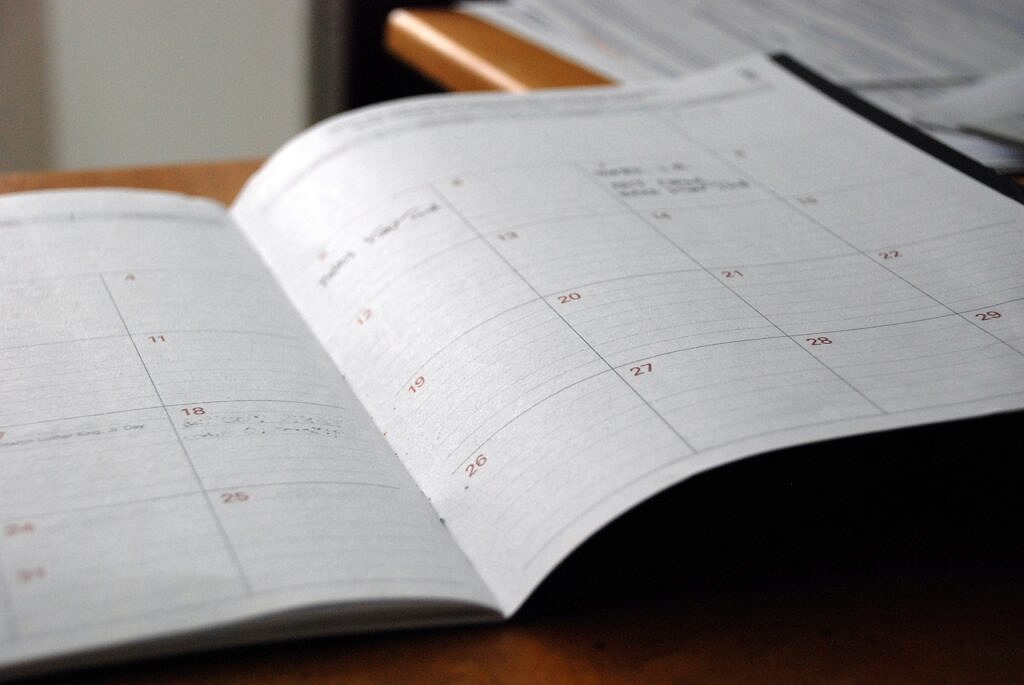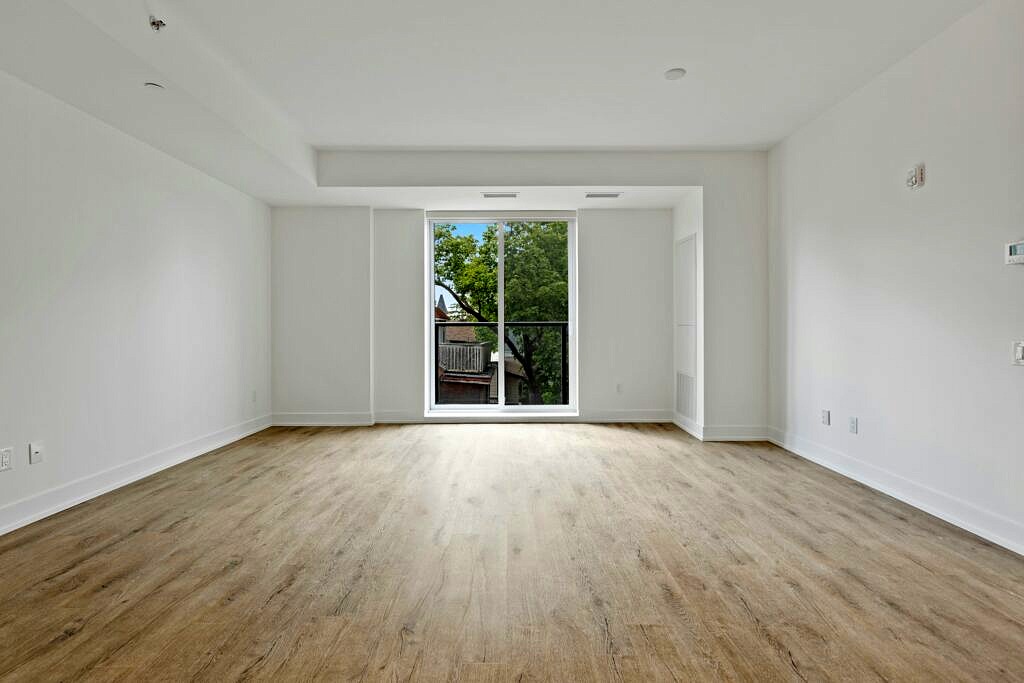Stuck in a Relationship Because of a Lease

That joint lease once symbolized a shared future, a cozy commitment etched in legal jargon. Now, it feels more like a gilded cage, trapping you in a relationship that has run its course. Whether your dilemma transpired in a rental home in San Jose or an apartment in Brooklyn, the thought of separate lives clashes with the very real, very binding contract you both signed.
You’re not alone. Stephanie West with West Mental Health Counseling says, “Sometimes when couples who are renting an apartment together are breaking up, feelings of loss extend beyond the relationship and into the financial.” Many find themselves in this uncomfortable limbo, where the financial implications of breaking a lease overshadow the emotional toll of a stagnant partnership. Unfortunately, Stephanie adds the very real insight that, “Not everyone can afford to stay elsewhere until the lease is up to get some space from their ex.”
So, how do you navigate this tricky terrain?
Angelica Jackson, relational and sex therapist with Denver Couples and Sex Therapy says, “It’s important to slow things down and approach the situation one step at a time. Connect with what is most important at this moment. Then, be open and creative with how you can care for that need.” This ApartmentGuide article delves into thirteen tips led by field experts to help you navigate this situation. Now, let’s get started.

1. Discuss restructuring the relationship
Before throwing in the towel on your living situation (and potentially your finances), have an honest, albeit difficult, conversation. Omar Ruiz, LMFT, and owner of TalkThinkThrive says, “Start with a calm, honest conversation. Even if the relationship isn’t working out, you both deserve genuine respect. Talk about your feelings, what you need, and what might help you both feel a little more comfortable living under the same roof.”
Heidi A. Saunder, licensed psychologist with Enrich Relationship Center says, “In times like these, some people find it helpful to restructure the relationship. This means changing the intentions and boundaries of how you relate to each other – moving from future-oriented plans to a more practical, here-and-now approach.”
Can you redefine your roles and interactions? This might seem unconventional, but open communication is the first step toward finding a manageable solution. Grace Dowd, founder and director of Grace Therapy and Wellness, says, “It’s important to start by setting clear emotional and physical boundaries, like creating separate spaces within the home.”
Restructuring after you’ve found yourself stuck in a relationship because of a lease isn’t going to be easy work and can alter your previous financial dynamics. Kayla Crane with South Denver Therapy recommends, “Treat shared expenses like you would with a roommate – clearly define who is responsible for paying rent, utilities, and groceries.”
2. Clarify why you’re staying (for now)
It’s crucial to explicitly state that the lease is the primary reason for the continued cohabitation. This helps manage expectations and prevents false hope of reconciliation. Jordan Grenadier Murphy with The Couples Coach says, “Start by asking yourself if you’re staying for emotional reasons or simply because the cost of leaving feels too high. Clarity on that will guide your next steps.”

3. Establish and respect boundaries
The boundaries that couples have can be drastically different from another relationship dynamic. Anna Morgan with Anna Morgan Coaching says, “When you start sharing space with another person in a relationship, boundaries naturally become blurry and less defined. Couples usually easily use each other’s belongings without permission, come into physical space anytime they want, and share information whenever they feel it.” Once that relationship dissolves, many things change, and new boundaries must be set.
This is non-negotiable. Define clear personal boundaries to create emotional and physical space. Kathy Cummins with Therapy Austin states, “Set clear, respectful boundaries around communication, shared responsibilities, and personal time. This could mean agreeing to talk through issues at calm, planned times, using considerate language, and focusing on what’s needed to coexist peacefully.” Establishing these invisible walls can help foster a sense of individual autonomy within the shared environment.
Grace Dowd, founder and director of Grace Therapy and Wellness shares how boundaries can also be set by establishing “separate spaces within the home.”
If your former partner isn’t respecting boundaries, Melissa Shaw, therapist with Knot Therapy says, “The truth is, because you’re broken up, you no longer have to get into long, drawn-out arguments. It doesn’t matter if they understand you or meet you emotionally. Learn to communicate in a simple, clear, almost business-like tone. Make your sentences short, objective, focusing on logistics, not feelings.”
4. Divide household tasks
Resentment can breed in the mundane. To minimize friction, create a clear and equitable division of household responsibilities. Outline who is responsible for what – from groceries to cleaning – to avoid unnecessary arguments and maintain a sense of fairness.

5. Sleep in separate spaces
If your living situation allows, consider sleeping in different rooms. Tori Palliccia with TorilpLMFT in Calabasas calls physical separation “key” and says, “Even if one of you ends up on the couch, this simple change sends an important message to both of your nervous systems: things have shifted. Emotional distance begins with physical boundaries.” This can provide much-needed personal space and contribute to a sense of individual retreat. Even a temporary arrangement can significantly impact your emotional well-being.
If your space allows, Bill Moran, licensed marriage and family therapist, says, “Designate individual rooms for privacy.” Bill adds how you can also “use physical dividers like bookshelves or curtains to create visual separation in shared spaces.”
6. Implement a schedule
Structure can bring a sense of order to a potentially chaotic situation. Intimacy guide and sex and relationship coach for Selfish Sexuality, Miranda Wylie says, “Transform common areas into neutral spaces with a formal schedule that prevents awkward kitchen standoffs.” Implementing a shared calendar for individual activities and comings and goings can help minimize unwanted interactions and provide a sense of predictability. Knowing when you’ll have the apartment to yourself can be a significant comfort.

7. Come to an agreement about new flames
This is a delicate but necessary conversation. Discuss boundaries regarding dating or bringing new partners into your shared living space. Establishing clear expectations can prevent awkward and potentially hurtful situations. To be safe, Miranda Wylie shares what she calls a “spoiler” to this situation, and that is to simply not do this.
8. Talk to your landlord
One of the first things you should do is speak with your landlord. This conversation could help you quickly avoid being stuck in a relationship because of a lease. Angela Hayes, master certified life coach with Life Coach Round Rock says, “Find out what all of your options are. Can another roommate take over for one of you? Talk to your support system and find out if there is anything they can do to help you.” Landlords may be understanding of your situation and offer a variety of solutions.
Sarah Murray, LCSW with Heart Wild Therapy says, “A few options might be to find someone to sublet, ask your partner to find a roommate, or maybe you can simply end the lease early.” Be transparent about your circumstances and inquire about any available alternatives.
Kristal DeSantis, author of STRONG: A Relationship Field Guide for the Modern Man says, “Leases and logistics can keep people tied to a space even when their romantic connection has ended. In those cases, co-living arrangements can be a game-changer.” In the interim, while you await your landlord’s decision, she recommends, “Lean on your support system and be open to receiving help navigation options for time and space apart.”
9. Explore your state’s laws
Not every relationship is going to end amicably, and sometimes our mental health is at risk. Kate Carmichael with ATX Counseling says, “Even if physical safety isn’t a concern, ongoing tension can take an emotional toll, making it hard to seek help.” Familiarize yourself with your state’s tenant rights and laws regarding lease breaking. Kate adds, “Check if your state has tenant-friendly laws that allow lease breaks in cases of harassment or severe conflicts.” Understanding the legal ramifications of early termination, including potential financial penalties and impacts on your credit score, is crucial for making informed decisions.

10. Prioritize self-care and valued friendships
This period can be emotionally draining, and Leigh Germann, LCSW, with Barton Creek Counseling, says, “Feeling stuck in a relationship because of a lease can take a real toll on your mental health – heightening stress, anxiety, and a sense of powerlessness.” Make a conscious effort to prioritize your well-being. A few recommendations that Leigh offers for protecting your emotional well-being are:
- Take a walk
- Journal
- Carve out quiet time just for you
Lean on your support system – friends and family – and engage in activities that bring you comfort and joy outside of the apartment. Anusha Atmakuri, LPC with Antara Counseling and Wellness suggests, “Spend some time crashing at a friend’s place if you need more space/time away.” She adds how, “You don’t have to be stuck in the relationship just because you have more time on your lease – you have options!” Nurturing your individual life is essential for navigating this challenging time.
11. Seek out therapy
Another approach to navigating the complexities of being stuck in a relationship because of a lease is therapy. Marina Edelman, psychotherapist in West Lake Village, says, “As a couples therapist with a subspecialty in financial therapy, I encounter these financial entanglements frequently. While a shared lease can bind you to a property, it doesn’t require you to sacrifice your emotional well-being or remain in an intimate relationship that no longer serves you.”
Consider individual or even joint therapy (if both parties are willing). Anne Petaro, LMHC with Eclectic Counseling, says, “Acknowledge the emotional toll of feeling stuck and seek support – your mental health matters, even if the logistics are complex.”
Kristine Tarmann with Dever Affordable Counseling shares how therapy can help “explore the emotional complexities, enhance communication skills, and work towards finding a balance while you secure a more sustainable living situation.”

12. Weigh your options
Continuously assess your situation and weigh the pros and cons of staying versus leaving. Hana Kleyn with Cynical Psychotherapy says, “Prioritizing your emotional well-being is not a failure; it’s a meaningful act of self-respect. If the shared space has become emotionally unsafe or depleted, consider whether the cost of leaving could be part of your healing journey.” There might come a point where the emotional cost outweighs the financial burden of breaking the lease.
Alex Barron with Alex Barron Coaching affirms this message, stating, “If you are feeling ‘stuck’ in a relationship due to a lease, then you have two options. The first is to pay money to get out of the lease. While this can be expensive, you have to weigh the cost of your happiness if you stay. Your happiness and mental health are worth much more than the money it will cost to break the lease. But let’s say you can’t afford to break your lease, then the second option is to still live together.”
Options are invaluable, therefore, it’s critical to look at the situation holistically to decide on the best approach.
13. Safety is paramount
If the situation ever feels unsafe or emotionally abusive, prioritize your safety above all else. Seek immediate help and explore options for leaving the living situation, regardless of the lease. Your well-being is the ultimate priority.

A challenging situation requiring support and tips
Even given the best of advice, being stuck in a relationship due to a lease is a challenging predicament. It requires a delicate balance of practicality and emotional resilience. By establishing clear boundaries, communicating openly, exploring your options, and prioritizing your well-being, you can navigate this difficult period with a degree of control and emerge ready for your next chapter, both in life and in finding your next apartment.




